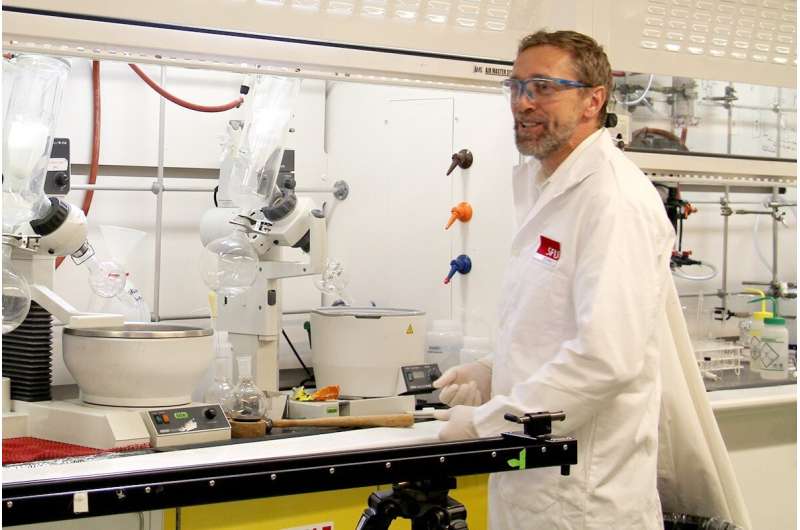Credit: Simon Fraser University
Discovering antiviral and anticancer drugs will soon be faster and cheaper thanks to new research from Simon Fraser University chemist Robert Britton and his international team.
For the past 50 years, scientists have used manmade, synthetic and nucleoside analogues to create drug therapies for diseases that involve the cellular division and/or the viral reproduction of infected cells. These diseases include hepatitis, herpes simplex, HIV and cancer.
But, says Britton, "That process has been intensive and challenging, limiting and preventing the discovery of new drug therapies."
Now, using the new process, scientists can create new nucleoside analogues months earlier than with the previous method, paving the way for quicker drug discoveries. A paper on this research was published today in the journal Science.
"The reduction in time and cost of synthesis will vary, depending on the individual nucleoside analogue, but we have examples where we cut a 20-plus step synthesis, which takes several months to complete at the very least, down to three or four steps, which would only take a week or so," says Britton.
"This is clearly a critical factor when it comes to treating newly evolved viruses like SARS-CoV-2 (COVID-19)."
The team shortened the process by replacing naturally occurring carbohydrates typically used for synthesising these types of drugs.
"This entirely new approach builds in opportunities to diversify these drug scaffolds and should inspire new and unusual nucleoside analogue drug discoveries," says Britton.
The team also replaced naturally derived chiral materials with achiral materials since they are generally cheaper and more versatile.
L.-C. Campeau, Merck's head of process chemistry and discovery process chemistry says, "One of our priorities is identifying problems limiting the speed of drug discovery and development, especially regarding synthesizing custom nucleoside analogues. We are very excited to collaborate with Professor Britton in establishing new methods to access this therapeutically important class of molecules."
More information: A short de novo synthesis of nucleoside analogs, Science 07 Aug 2020: Vol. 369, Issue 6504, pp. 725-730, DOI: 10.1126/science.abb3231 , science.sciencemag.org/content/369/6504/725
Journal information: Science
Provided by Simon Fraser University
























